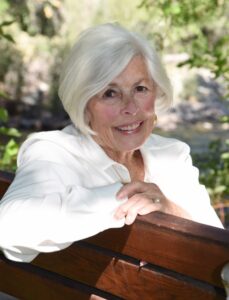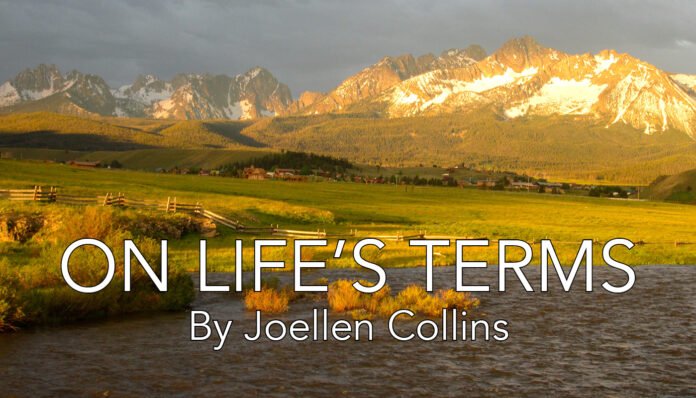BY JOELLEN COLLINS

I tend to look upon the past with rose-colored glasses, a quality not much admired in our current civilization, where we try to live more for the moment than for memories. In my downsizing efforts, I often come across something appealing to my more sentimental nature, like letters written to me, followed by bittersweet readings remembering the writer.
However, I am also fascinated by the emerging “truths” revealed in contemporary studies of events that were censored, controversial, or simply too horrendous to be covered candidly at an earlier time.
The newly released film “Oppenheimer” brought back memories of the early days of the use of the atomic bomb and how little I learned about it as a child. Only when we began classroom drills to hide under desks in the case of a nearby attack did I deal with the fear and some of the history of that event. That bombing, occurring so far away and to a country whose emperor was pictured on an ugly poster as an inhuman monster named TOJO, seemed just one other horrible result of World War II. My mother possessed silver pins for her ’40s jacket like the tiny shovel engraved with the sentence, “Bury the Japs today.” That piece of jewelry, worn by my loving and kind mother in a time of justified and fervent patriotism, is hard for me to imagine.
As I matured and read books like John Hershey’s Hiroshima, I began to understand the horror and the intense pain caused by that conflict. I started having nightmares about a black, ashy image of my mother burned into our front door. They were pervasive enough to remain in my memory as unremovable etchings.
A prominent subject of “Oppenheimer” was the absolute need for secrecy in all facets of the creation of the bomb, and the possible evolution of a hydrogen bomb, perhaps obliterating much of the world. I do think if most citizens had been aware of its ferocity, it may never have come to fruition. The war was won by the attacks on Hiroshima and Nagasaki, and no one can say for sure how many allied lives were saved as the result of that effort by some of the most brilliant scientists ever.
I am glad I watched that difficult movie because it added information to my very incomplete knowledge about a time in which I was a child. Adopted, I didn’t even know that my biological father won honors as a paratrooper who broke his back in three places from a faulty parachute. I just received a picture from a newly contacted half-brother in California of my birth father and his five brothers posing together in their uniforms in 1945. One of them had survived a prisoner-of-war camp. Had I been raised in that family, I may have experienced another view of the war. I never met any of them. Who will ever know what those men believed needed to be done to finish the war?



